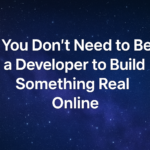 As discussed in the first volume of this series, social media has introduced new methods of communication for users who can benefit from unimpeded interactivity. It has certainly changed the way we navigate our social lives, reshaping the way we connect, interact, and engage with others.
As discussed in the first volume of this series, social media has introduced new methods of communication for users who can benefit from unimpeded interactivity. It has certainly changed the way we navigate our social lives, reshaping the way we connect, interact, and engage with others.
When used as a means to facilitate our social lives, social media brings many benefits. However, when overused it can lead to us forming unrealistic expectations, neglecting real-life interactions, and even experiencing greater anxiety.
This article will discuss how social media has impacted our everyday lives, especially as a response to circumstances changing around the world in 2020:
Body Dysmorphia
Some would argue that people are doing worse than ever because the technology that’s meant to be keeping us together is actually making us feel bad. Spending countless hours on Zoom can lead to us feeling insecure about our appearance, where video conferencing represents a constant unfiltered version of ourselves.
This can be unsettling for the average user, especially when front-facing cameras are in essence a distorted reflection of reality. It’s important to remember that we didn’t evolve to see our faces all the time, which is why today’s selfie-driven culture goes against our natural instincts.
Cameras are renowned for causing certain facial characteristics to change, another critical factor that’s led to today’s Zoom dysmorphia phenomenon. To compound matters further, there is another technology that’s making us feel even worse about ourselves…
Photo Filters
Filters make us look more attractive, but they set unhealthy standards which are impossible to match. They have been coined harmful because they exploit our obsession with personal appearance in a selfie culture where mental health issues are multiplying. In today’s selfie generation, self-esteem has reached new lows, where consumers are losing touch with reality in a world where inhuman is considered desirable.
These unrealistic expectations of beauty make us feel insecure about our natural appearance, where the filtered renditions of people are becoming the new norm. This can have undesirable consequences for teens who are at crucial stages of development, where rather than establishing a sense of self they’re essentially engaging in a catfish culture.
Negative body perception is rising in young people, where social media is making us feel unhappy about how we look. That’s why new online chat platforms like CMX Chat are rising in influence due to their ability to reflect real-life interactions in a controlled setting.
Social media makes us unhappy with how we look, so filters are used to perpetuate the unrealistic expectations we embrace. Filters have even been known to encourage people to get cosmetic procedures to look more like their filters, something that underlines the dangerously profound impact filters can have on society.
Movement Against Filters
Influencers have been speaking up against filters and are opening new lines of thought. In fact, people are taking a stand by posting unedited images of themselves to expose the dangers of digital distortion. This is a great way to set an example for young girls, breaking down the misconception of the perfect image to bring awareness to how people can manipulate lighting and angles to create a flawless look.
Exposing the dangers of digital distortion is a progressive step in an age where there should be no shame about appearance. The subject has even received traction in political circles, where UK MP Luke Evans proposed a digitally altered body image bill where advertisers and publishers must display a logo when someone’s face or body has been digitally enhanced.
However, despite being a step in the right direction, slowing society from creating unrealistic beauty standards feels like an insurmountable task. What we can continue to strive for is better education of people to understand and appreciate that we’re all beautiful.
Privacy
Our phones know everything about us, but now Apple is going to give us more control over how widely our information is shared. The company is making it harder for apps to track your online activity, where now you must give permission for apps to track your information.
Recently, things took an even better turn, where you must physically switch from opt-out to opt-in if you’re to consent to sharing your information. This shifts the power back into the hands of the consumer, representing a revolutionary development in the way our information is shared. The introduction of new privacy features is a great step for iPhone users, but this is bad news for Facebook because its business model is built on sharing information with third parties.
As a result, Facebook has threatened that its service might no longer be free? This statement is evidence of how heavily Facebook relies on tracking data and targeted marketing to make money.
Some have suggested that Apple’s move may harm Facebook’s small advertisers because they won’t be able to target adverts anymore. Regardless of whether this is true or not, it is the way Facebook has been tracking us that has rubbed us up the wrong way, where they’ve seemingly been stalking our entire lives!
With the new rules in place, Facebook can’t use search history to show ads for things users want to buy unless an individual opts-in. This might seem like a problem, but since we’ve spent most of our lives viewing untargeted ads, why is this all of a sudden an issue?
The reality of the situation is that we can and always have handled untargeted ads. The only difference now is that invested parties are set to lose money because our information will be less widely available.
If anything, this raises the larger question of whether Facebook built its entire business model on the grounds of stalking? Facebook’s legal battles have brought considerable awareness to privacy concerns, forcing companies to rethink their approach to safeguarding the best interests of consumers. That’s why many social platforms like CMX are incentivized to promote consumer privacy as a top priority, maintaining a safe environment where sensitive information remains secure.
Selfies
What was once a harmless method of capturing a moment has transitioned to having real-world consequences. Constantly looking at pictures of your own head/face can cause complications, where we’re so hyper-aware of our own appearance we’ve become increasingly judgmental about ourselves and about our friends and foe circle.
Selfies seem to accelerate issues with beauty perception, but it’s important to remember that sometimes being human is about resisting the urge for instant gratification. There is a time and place for selfies, where narcissism is far from a new concept. I mean after all, what’s worse, a 2-second selfie or spending 6 months painting yourself? 😂
Social Media Companies Silencing Free Speech?
As covered extensively in the first chapter of this series, social media has transcended the way we stay informed, communicate, and ultimately lead our lives. Conservatives have recently complained about technology companies showing incredible bias against them, where the clear tendency for social media giants to skew information is creating a war on free speech.
The justice department has extensively investigated the extent to which Facebook has intentionally stifled the free exchange of ideas, exploring the very censorship that defies everything the internet once represented.
Former President Donald Trump spoke out against this issue, claiming we cannot tolerate political censorship, rigged search results, and black listing. The internet should be a space that’s free from bias, however many influential companies are quick to censor lines of thought that go against the popular narrative.
Whatever happened to free, open discourse? Fortunately, the freedom of the internet is not entirely under fire, especially when chat forums like CMX are tapping into what made the internet so great in the first place: free, open discussions in an unrestricted environment.
In an internet age that can often prioritize old negative stories, this is exactly what we need. In today’s fight for free speech, it’s great to know that there are pathways of light that can free us from the shackles of internet enslavement.
Despite the negative connotations of social media outlined throughout this article, when harnessed correctly the power of the internet can help us reach new levels of consciousness. We are taking steps to improve the culture of the internet, but changing mindsets is the most difficult task of all.
~cmx




